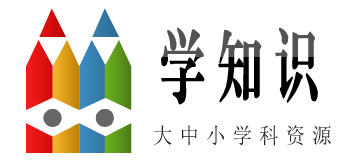请同学们按以下步骤复习:
1. 单词:熟读单词,能够听写过关,知道单词用法。
2. 短语搭配:记熟短语搭配,抽查能够过关。
3. 单元语法与知识点:掌握本单元语法与知识点,
4. 课文:熟读课文,会读会翻译。
5. 单元作文:能够熟练写一篇本单元话题的作文。
一、单词
要求:1.会读 2. 听写过关
二、短语
1. go on vacation去度假=Take a holiday
2. Stay at home待在家里
3. Go to summer camp去夏令营
4. Go to the mountain去爬山
5. Go to the beach去沙滩
6. Quite a few相当多+可数名词
7. Buy something special买一些特产
8. Of course当然
9. Study for a test为考试而学习;备考
10. Do something interesting做有趣的事
11. Have a good time=have fun=enjoy oneself玩得高兴
12. Get bored感到无聊
13. Keep a diary记日记
14. Decide to do sth.决定做某事
15. Try doing sth.尝试做某事
16. Try to do sth.尽力去做某事
17. Feel like doing sth.想要做某事
18. In the past在过去
19. Enjoy doing sth.喜欢做某事
20. Too many/much 太多
21. Rain hard下大雨
22. Because of由于
23. Wait for sb.等候某人
24. Keep doing sth.坚持做某事
25. Go out出去
26. Take photos=take a photo拍照
27. Take photos of sb./sth,=take a photo of sb./sth.拍……的照片
28. In excitement兴奋地;激动地
29. Buy sth. For sb.=buy sb.sth.给某人买某物
三、常考句型
1. How do you like sth.?
=What do you think of sth.?
=How do you feel about sth.?
你认为……怎么样?
2. Where did you go on vacation?你去哪里度假?
3. My legs were so tired that I wanted to stop.我的腿如此累以至于我想停下来。
四、单元语法
复合不定代词
一、什么是复合不定代词?
(1)someone某人、somebody某人、something某物/某事
(2)Anyone任何人、anybody任何人、anything任何事物
(3)Everyone每个人、everybody 每个人、everything每件事物
(4)No one没有人、nobody没有人、nothing没有什么
二、用法
1. 形容词、动词不定式修饰不定代词时,放其后。
I have something interesting to give you.
Do you want anything to eat?
2. 复合不定代词作主语时,谓语动词用单数形式。
Everyone is important for their parents.
Nobody wants to go out in summer.
三、易错点
含some的复合不定代词:
(1)用于肯定句:
e.g. There is something in the box.
(2)用于固定句型:
e.g. Would you like something to eat?
含any的复合不定代词:
(1)用于否定句/疑问句中,代替含有some的复合不定代词。
E. g.There isn’t anything in the box.
(2)用于肯定句,意为“任何人/物/事”。
F. g. Anyone likes money.
Anything is possible.
四、含复合不定代词的固定句型:
There is something wrong with…某物坏了/出问题了。
e.g. There is something wrong with my TV.我的电视出问题了。
五、知识点
1. 反身代词:
myself我自己、yourself你自己、himself他自己、herself她自己、itself它自己、ourselves我们自己、yourselves你们自己、themselves他/她/它们自己
反身代词常见固定搭配:
Teach oneself自学
Enjoy oneself玩得高兴
2.(课文原句) Still no one seemed to be bored.
seem好像;似乎;看来
(1)seem+(to be)+n./adj.
Tom seems (to be) a very clever boy.
汤姆看起来是一个非常聪明的男孩。
The movie seems (to be) interesting.
这部电影似乎很有趣。
(2)seem to do sth.
The boy seems to know nothing about it.
这个男孩似乎对它一无所知。
(3)It seems that … 似乎…,好像…(放于句首)
It seems that Mr. Wang is at home.
王先生好像在家。
3.(课文原句)…so we decided to go to the beach near our hotel.
decide v. 决定;选定
decide to do sth.决定做某事
decide not to do sth.决定不做某事
decision n. 决定 make a decision做决定
make a decision to do sth.=decide to do sth.决定做某事
4.(课文原句)My sister and I tried paragliding.
try v.&n. 尝试;设法;努力
try to do sth.尽力做某事
try doing sth.尝试做某事
try/do one’s best to do sth.尽某人最大的力量做某事
have a try试一下
try on试穿
5.(课文原句)I feel like I was a bird.
feel like的用法
(1)感觉像+名词/从句
(3)想要+名词/代词/v.-ing
feel like doing sth.=want to do sth.=would like to do sth.想要做某事
6.(课文原句)What a difference a day makes!
difference n.差别;差异
different adj.不同的
be different from不同于
7.感叹句
What引导的感叹句:
(1)What +a/an +adj.+可数名词单数(+主语+谓语)!
e.g. What a beautiful girl she is!
What an interesting book it is!
(2)What +adj.+可数名词复数/不可数名词(+主语+谓语)!
e.g. What beautiful girls they are!
How引导的感叹句:
How+adj./adv.+主语+谓语!
e.g. How beautiful she is!
How fast he runs!
8.(课文原句)We waited over an hour for the train because there were too many people.
wait v. 等待;等候
(1)wait for sb./sth.等候某人/某物
(2)wait to do sth.等候做某事
(3)wait for sb.to do sth.等候某人做某事
(4)can’t wait to do sth.迫不及待做某事
9.(课文原句)And because of the bad weather, we couldn’t see anything below.
because of由于
because 与 because of 的区别:
because(连词) + 句子
e.g. I didn’t buy the sweater because it was too expensive.
because of(介词短语)+单词/短语
e.g. Because of the heavy rain, we had to stay at home.
10. (课文原句)My father didn’t bring enough money.
(1) enough作形容词,意为“充足的,足够的,充分的”(修饰名词放名词前)
e.g. I have enough time to finish my homework.
(2)enough作副词,意为“足够地,充足地”。(它修饰形容词时应置于该形容词后面)
e.g. He did his homework carefully enough.
11.Too many/too much/much too
(1)too many太多+可数名词复数
e.g. I bought too many books yesterday.
(2)too much太多+不可数名词
e.g. I have too much homework to do.
(3)much too太(修饰形容词/副词)
e.g. Everything was much too expensive, so I bought nothing.
You’re walking much too fast.










